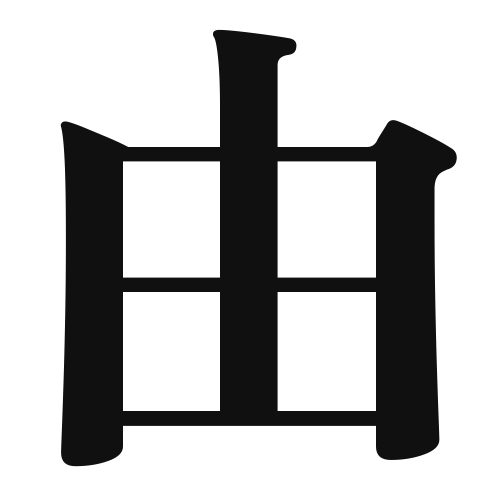1. Overview of Meaning
The kanji “由” (yuu) generally means “reason,” “cause,” or “origin.” It is often used to indicate the source or basis of something.
2. Formation and Radical
Formation of the Kanji: The kanji “由” is classified as a ideogram, which means it represents an idea or concept rather than a specific object. It combines elements that convey the notion of a reason or cause.
Radical: The radical for “由” is “由” itself, which is used in various kanji to convey similar meanings related to reason or origin.
3. Examples of Usage
Common Words and Phrases: Some frequently used words that include “由” are “理由” (riyuu – reason), “由来” (yurai – origin), and “自由” (jiyuu – freedom).
Example Sentences in Daily Conversation:
- この問題の理由は何ですか? (What is the reason for this problem?)
- 彼の行動には由来があります。 (His actions have an origin.)
4. Synonyms and Antonyms
Similar Kanji: A similar kanji is “因” (in), which also means “cause” but is often used in a more specific context, such as in “原因” (gen’in – cause).
Opposite Kanji: An antonym could be “無” (mu), which means “nothing” or “absence,” representing a lack of reason or cause.
5. Cultural and Historical Background
Relation to Japanese Culture: The kanji “由” is often used in philosophical and literary contexts, reflecting the importance of understanding the reasons behind actions and events in Japanese culture.
Proverbs and Idioms: One common expression is “理由がある” (riyuu ga aru – there is a reason), which emphasizes the significance of understanding the underlying causes of situations.
